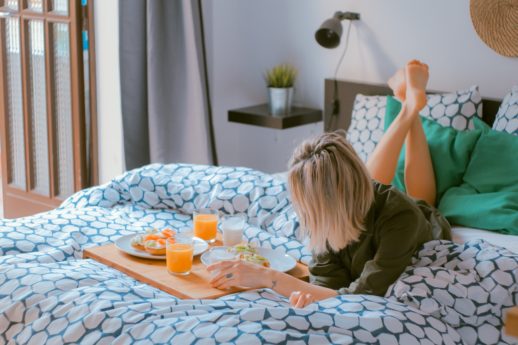
How Minimalism Can Improve Your Health
Photo by Toa Heftiba on Unsplash
This is the opposite of minimalism: you spend too much money, you have debt and clutter building up, you’re always busy yet feeling behind, you don’t have time for self-care, you often back out of commitments last minute because you have too much on your plate. Sounds stressful, doesn’t it?
Accumulated stress in everyday life has a dramatically negative impact on overall health. Not only can stress lead to early aging, memory loss, and heart problems, it can make you more prone to certain diseases, cause weight gain, and weaken your immune system. Some forms of stress can be good for us, but most stress decreases our health and overall happiness.
In this article, we’ll discuss how a minimalist lifestyle can reduce stress and improve your health, even with just a few minor life changes. We’ll also cover ideas for adopting a minimalist lifestyle and suggestions for those small changes that can make a big impact.
Less Stuff, Less Stress
There are sources of stress we can’t avoid, and some stress can be helpful, pushing us to do the things we know need to be done. But we can avoid some unnecessary stress in our daily lives by adopting a minimalist mindset.
Minimalism is the philosophy that you should eliminate anything unnecessary from your life. Living minimally is a path to a simpler life that, ideally, provides more room, resources, and time for the things that truly matter in life. Leo Babauta, author of Zen Habits, defines minimalism on his FAQ page for us:
“It’s simply getting rid of things you do not use or need, leaving an uncluttered, simple environment and an uncluttered, simple life. It’s living without an obsession with material things or an obsession with doing everything and doing too much. It’s using simple tools, having a simple wardrobe, carrying little and living lightly.”
Many families think minimalism is impossible for them because they think the needs of each individual member of their family adds up to everything they currently own or do. But as you can see from the above definition, minimalism doesn’t necessarily mean you can only own a few items and nothing more.
The point is to pare down your life as much as possible. Not only your possessions, but even your relationships, project, commitments, and hobbies too. Living the minimalist philosophy does take a commitment to work at it, but it can be done in little steps like taking a minimal approach to organizing and decorating your home, going paperless on your bank statements and bills, and unsubscribing from unnecessary emails. Each of these steps are easy and will greatly reduce the amount of distractions and stressors in your life.
How to Live Minimally
You don’t have to change your entire life to adopt a minimalist mindset and start eliminating anything unnecessary from your life. Here are a few tips to get you started:
- Choose Quality: Instead of spending a lot of money furnishing and decorating your entire home, find a few key pieces for each room and let them stand out. Invest in quality pieces instead of trends or wait for vintage classics to go on sale.
- Find Joy: Decorate with meaningful items that give you a sense of joy every time you see or use them. This applies to knick-knacks, books, throws, and candles.
- Simplify Your Wardrobe: Apply a quality over quantity mindset to your wardrobe. Pare down your clothes to only the staples and items you love. Then, only add an item to your closed if you’re removing one.
- Downsize: Two out of five tiny house owners are over 50-years-old. Living in a 200-square-foot home generally appeals to an older crowd, or single adults. But even if a tiny house isn’t right for you, downsizing to a slightly smaller home is a great way to minimize your life, eliminate excess work, and even save money.
- Purge Regularly: At first, it will seem difficult to eliminate things that you think you need. But living minimally means you will probably donate bags and boxes of clutter on a regular basis.
- Freeze Social Media: Consider deleting some of your social media accounts, or take a day, week, or month long social media freeze. Also consider minimizing other digital distractions like cable and streaming subscriptions.
There are so many different ways to simplify your life, this list certainly doesn’t exhaust them all. Whether you start with your closet or by taking a digital break; you’ll start feeling happier and healthier by eliminating excess stuff, and stress, from your life.




